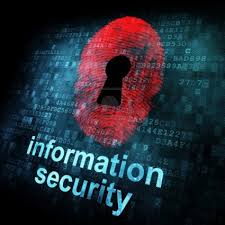
Can my email signature be forged? How about using an electronic signature on legally recognized documents? Both issues were recently presented to me by our senior equity partner at the law firm. My answers, yes & yes, but let me explain. It boils down to understanding Information Rights Management (IRM) and meeting the statutory requirements for using a legally recognized electronic signature.
Issue #1 Information Rights Management
When it comes to preventing email signatures from being altered, copied, or forwarded without authorization, an IRM policy must be implemented. Assuming we’re using an email client such as Outlook 2010 or newer, additional third party Microsoft credentials are required. Here’s how it works.
Information Rights Management (IRM) allows you to specify access permissions to email messages. IRM helps prevent sensitive information from being read, printed, forwarded, or copied by unauthorized people. After permission for a message is restricted by using IRM, the access and usage restrictions are enforced regardless of where the message goes, because the permissions to access an email message are stored in the message file itself.
IRM is generally implemented at the server level using Microsoft Exchange software. Alternatively, IRM is hosted on Microsoft servers by Microsoft for free, but requires a Microsoft Live ID (@hotmail.com email) to use. In order to utilize IRM internally, for example, a law firm would need one of the following: (1) running their own Microsoft Exchange server and managing it in-house, or (2) use a new or existing Microsoft Live ID (@hotmail.com ID) in conjunction with a firms existing hosted email to take advantage of IRM hosted for free on Microsoft servers. Clearly the latter is the most cost effective; however it would require several additional steps in sending an IRM equipped email.

Issue #2 Using Electronic Signature
Here in Arizona, under Arizona Revised Statutes, an electronic signature is defined as an electronic process that is attached to or logically associated with a record that is executed or adopted by an individual with the intent to sign the record. A.R.S § 44-7002
Furthermore, a signature is considered secure if, at the time it was made, and applied through a security procedure it is; (1) unique to the person using it, (2) capable of verification (3) under the sole control of the person using it, and (4) linked to the electronic record to which it relates in such a manner that if the record were changed the electronic signature would be invalidated. A.R.S § 44-7003
Generally speaking, an electronic signature can be any electronic means of indicating that a person adopts the contents of an electronic message. However, under A.R.S. § 44-7003, to qualify as a secure electronic signature, the operative requirement is element (4), the necessity to have ones identity validated through a third-party security certificate service. Such services are seemingly analogous to credit reporting agencies however solely for electronic identity. Currently, there are seven credentialing services customarily used throughout the industry. Those seven services include ARX CoSign, Avoco secure2trust, ChosenSecurity, Comodo, GlobalSign, My Credential, and VeriSign.
If your firm decides to implement a secure electronic signature digital ID, it is recommended you use a platform you may already be using. For instance, at our firm, we use Norton for anti-virus protection. It just so happens Norton is who issues VeriSign electronic signatures. A yearly subscription is required however, with a digital ID, a possessor would not only be able to securely sign electronic documents, but also send digitally signed emails which, in and of itself, constitutes a secure verified document. The process is fairly simple; a YouTube video explaining the process can be viewed here.
Conclusion
In conclusion, to protect email signatures from alteration, unauthorized copying and forwarding, a law firm has the option to implement Microsoft IRM services through the use of Microsoft Live ID accounts in lieu of costly in-house Exchange server management. Furthermore, secure electronic signatures pursuant to A.R.S § 44-7031, can be achieved through the use of digital ID’s validated through third-party security certificate services.